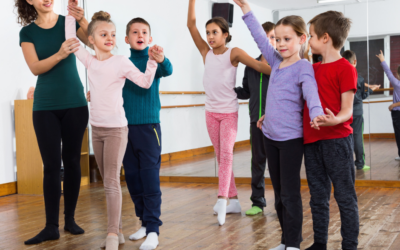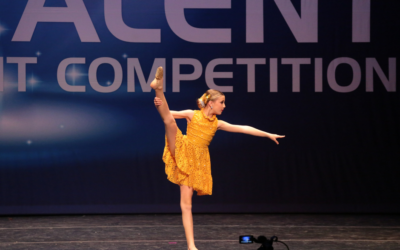 From sports to politics, performance arts to pop culture — it seems like there are two sides to every coin, no matter what the denomination might be. In the dance world, one such polarizing topic just happens to be about whether or not competitive dance should be considered a sport.
From sports to politics, performance arts to pop culture — it seems like there are two sides to every coin, no matter what the denomination might be. In the dance world, one such polarizing topic just happens to be about whether or not competitive dance should be considered a sport.
At QC Dance Studio, many of our instructors are competitive dancers themselves, so we certainly fall in the camp that considers competitive dance a sport. However, we definitely understand the flip side of the argument as well. Read on and decide for yourself: Is competitive dance a sport, or purely an art form?
What Qualifies as a Sport, Anyway?
Before we analyze whether or not competitive dance satisfies the requirements of a sport, it’s important to know what exactly a sport is. There are many different definitions of what qualifies as a sport. For these purposes, we’ll rely only on the Dictionary.com definition:
sport [spawrt] – noun 1. an athletic activity requiring skill or physical prowess and often of a competitive nature, as racing, baseball, tennis, golf, bowling, wrestling, boxing, hunting, fishing, etc.
Basing the argument solely off of this definition, it’s easy to see how competitive dance can be considered a sport. But the argument goes further than this: Sports require intensive training in specific areas of physical fitness. According to experts, these five key areas include cardiovascular endurance, muscular endurance, muscular strength, flexibility, and body composition.
Does Competitive Dance Qualify as a Sport?
When we further evaluate the definition of a sport as a way to hone physical fitness, competitive dance easily satisfies the key elements identified by the experts, including:

Endurance
Competitive dancers must develop both cardiovascular and muscular endurance in order to be successful on the stage. A dancer’s cardiovascular edurance allows them to last through the length of their routines while their muscular endurance ensures they are able to remain in perfect position. Each movement requires incredible precision, which is why both cardio and muscular endurance are so essential for the competitive dancer.
Strength
Not only do dancers require muscular endurance, but they also must have muscular strength. Competitive dance routines can be quite complex, demanding exceptional feats from each dancer. From lifting and jumping to twirling and pointing, many dancers would be unable to complete their routines were it not for the muscular strength built up through hours of intense rehearsals.

Flexibility
If you’ve ever seen a dance competition in-person or on TV, then you know that dancers are no strangers to incredible feats of flexibility. Whether it be a solid needle, scorpion, or other wild display of flexibility, competitive dancers work tirelessly to push the limits and make dazzling shapes for their audiences.
Composition
Few competitive sports players pay closer attention to their body composition than dancers. With their bodies on full display in form-fitting costumes for a panel of judges, monitoring body composition is part of a competitive dancer’s nature. Not only that, but dancers’ bodies act as their instrument: If that instrument isn’t finely tuned, they wouldn’t be able to perform their routines, losing their place on the podium.
Why Some People Don’t Consider Competitive Dance a Sport
 Despite all of these reasons, some people remain steadfast that competitive dance should not be considered a sport. Rather, they believe that dance, above all else, is an art form. Some people even believe that dance competitions have taken dance further from its roots as a form of emotional expression and storytelling. This argument tends to see dance more as a form of acting or musical theater.
Despite all of these reasons, some people remain steadfast that competitive dance should not be considered a sport. Rather, they believe that dance, above all else, is an art form. Some people even believe that dance competitions have taken dance further from its roots as a form of emotional expression and storytelling. This argument tends to see dance more as a form of acting or musical theater.
Another argument for why many people don’t consider competitive dance a sport is that the judging systems are subjective. Unlike with gymnastics or ice skating, dancing judging systems do not require specific moves to be incorporated into routines in order to qualify or win.
Whether you view dance as a competitive sport or a form of creative expression, QC Dance Studio has a home for you at our all-inclusive dance studio. Offering both the opportunity to join our competition dance teams as well as our recreational dance team, we foster an environment where all dancers can further their skills and education — no matter what side of the debate they fall on! Contact us for more information about our available dance classes and competition opportunities today.



